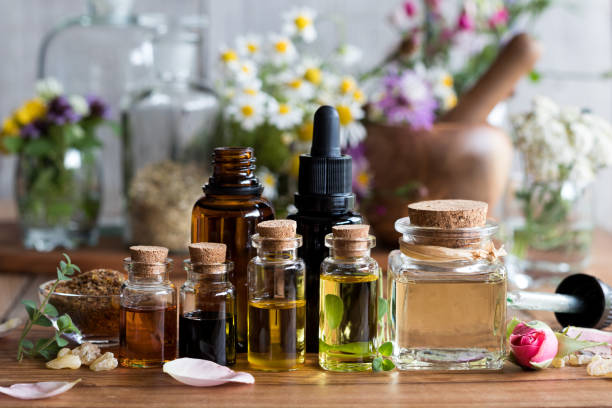Aromatherapy has been used for centuries as a natural method for improving health and well-being. It involves the use of essential oils, which are concentrated plant extracts that contain the natural fragrances and healing properties of the plant. These oils can be inhaled or applied to the skin in various forms, such as through massage or in a bath, and have been shown to have numerous benefits for the body and mind.
One of the main uses of essential oils in aromatherapy is for sleep and relaxation. Many people struggle with sleep issues, such as insomnia or difficulty falling asleep, and the use of essential oils can help to promote relaxation and improve sleep quality. In this blog post, we will explore the role of essential oils in aromatherapy for sleep and relaxation, including best essential oils for insomnia how they work and which oils are best for this purpose.
How Essential Oils Work?
Essential oils work through the sense of smell, which is closely connected to the part of the brain that controls emotions and memories. When an essential oil is inhaled, the molecules travel through the nose and into the olfactory system, where they interact with the brain. The brain then sends messages to the body, influencing the body's physical and emotional responses.
For example, the scent of lavender oil has been shown to have a calming effect on the body, which can help to reduce stress and anxiety. This is why lavender oil is often used in aromatherapy for sleep and relaxation. Other essential oils that are known for their calming properties include chamomile, frankincense, and ylang ylang.
Which Essential Oils Are Best for Sleep and Relaxation?
There are many essential oils that can be used for sleep and relaxation, and which one is best will depend on your individual needs and preferences. Some of the most popular natural sleep remedies using essential oils include:
- Lavender: As mentioned above, lavender oil is known for its calming properties and is often used to promote relaxation and sleep. It has a floral scent that is soothing and calming, and can help to reduce anxiety and stress.
- Chamomile: Chamomile oil has a sweet, floral scent and is known for its calming and relaxing effects. It is often used to promote sleep and can also help to reduce anxiety and stress.
- Frankincense: Frankincense oil has a warm, woody scent that is soothing and calming. It is often used to promote relaxation and sleep, and can also help to reduce anxiety and stress.
- Ylang ylang: Ylang ylang oil has a sweet, floral scent that is known for its calming and relaxing effects. It can help to reduce anxiety and stress, and is often used to promote sleep.

How to Use Essential Oils for Sleep and Relaxation?
There are several ways to use relaxation techniques with essential oils, including:
- Inhalation: One of the easiest and most effective ways to use essential oils for sleep and relaxation is through inhalation. You can add a few drops of the oil to a diffuser, which will disperse the oil into the air for you to inhale. You can also add a few drops to a tissue or handkerchief and inhale the scent directly.
- Massage: Massaging essential oils into the skin is another effective way to use them for sleep and relaxation. You can mix the oil with a carrier oil, such as almond oil or jojoba oil, and then massage it into your skin. This can help to relax the muscles and promote a sense of calm.
- Bath: Adding a few drops of essential oil to your bath can be a relaxing and enjoyable way to use them for sleep
- and relaxation. You can add the oil to your bathwater or mix it with a carrier oil or bath salts before adding it to the tub.
- Topical application: You can also apply essential oils directly to your skin, although it is important to dilute them with a carrier oil first to avoid irritation. You can apply the oil to your pulse points, such as the wrists or temples, or to areas of the body that tend to hold tension, such as the neck or shoulders.
Keep in mind that essential oils are highly concentrated and a little goes a long way. It is important to use them sparingly and follow the recommended usage instructions on the label.
In conclusion, essential oils can be a natural and effective way to promote sleep and relaxation through aromatherapy. They work through the sense of smell to influence the body's physical and emotional responses, and can help to reduce stress and anxiety. There are many essential oils that are known for their calming and relaxing effects, including lavender, chamomile, frankincense, and ylang ylang. These oils can be used in various forms, such as through inhalation, massage, or in a bath, and are generally safe to use when used properly. Just be sure to choose high-quality oils, dilute them properly, and consult with a healthcare professional if you have any health concerns.











